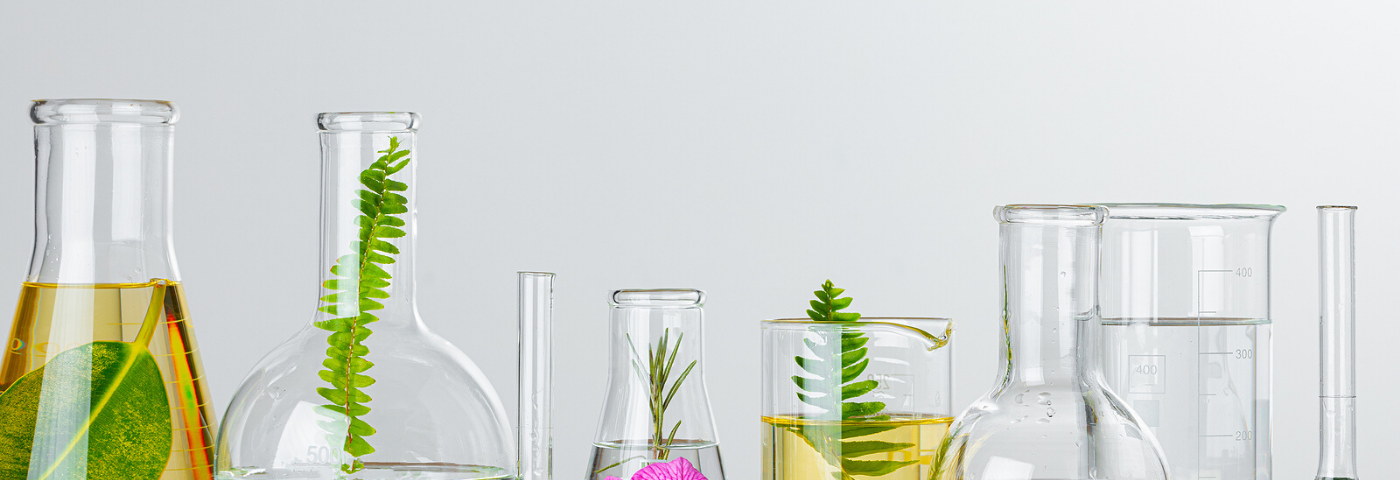(Sponsored content): Interview with Jean-Yves Berthon, CEO, Greentech
The use of microalgae is widespread in the food industry but less so in the cosmetic industry. What are its benefits in formulation terms but also for the end-user?
Almost 100,000 species of algae have been identified in freshwater and the marine environment. This great biodiversity makes it possible to meet very varied cosmetic expectations, whether for biological activities: hydration, sun protection, pigmentation, microbiota, protection against exposome, skin elasticity… or functional ingredients: gelling, texturing, chelating.
Due to their biotope, algae may have to naturally resist the rays of the sun, dehydration and currents. They have therefore developed adaptive capacities, either enzymatic, structural or biochemical, in order to cope with its environmental variations. Compounds such as polysaccharides in large quantities in algae will find applications as a texturizer but also as bioactive. Proteins, other polymers, polyphenols, also have great potential in formulations. Besides these functional and bioactive properties, these compounds will have a low environmental impact.
Greentech is renowned for its plant biotechnology-based active ingredients. With the increasing need for safety and transparency in light of Covid-19, there are clear benefits for consumers. But are there any formulating challenges associated with biotech?
Silicones for example and chemical preservatives are not considered safe for consumers although they are important in formulation terms – with regards to touch and to avoiding contamination during the use of these products.
Bacteria but also micro-algae naturally produce exopolysaccharides, which present interesting viscosity that can be used in formulation for texturing the cream or forming a gel. Depending on the secondary structure of polysaccharides, the gelling properties are different.
Specific enzymatic hydrolysis can also change the property of these polysaccharides. Depending on the substrate, the strain or the process, there is a pallet of available biotech gelling agents. Some of them can be directly extracted from plants – and this also applies to preservatives. With paraben bans, many companies are looking for alternatives from nature or biotech. There are some biotech solutions in the market but they are only active on some strains but not as universal as parabens, although nature should offer alternative global preservatives when researched properly. This is a challenge but solutions are not too far off.
You support many sustainable projects around the world, from Burkina Faso to Peru. How do you decide on these projects and how do they benefit local populations?
For more than 25 years, we have developed our own sourcing and close partnerships with all of our suppliers, wherever they are located. Thanks to this, suppliers are providing us with many new raw materials. We exchange ideas, agronomical practices and results and they can supply materials for production.
Finally, as we get quality and consistency, our suppliers are developing their business steadily, and bonds are created. We respect them and their work and they respect their commitment to supply quantity with good quality at the right time. Why do we supply specific supply chains? It is a matter of human character. We are lucky enough be at the beginning of the Omega project initiated by José Anaya whose life revolves around Inca Inchi and we are always by his side. The same applies to Marc Olivier in Burkina Faso. We have been working with him for 20 years and he was honoured as a Knight of the Order of Merit in the country ten years ago. Prof Zoubida Charrouf in Morocco, my friend Alassane in Senegal, Prof Andrea in Madagascar, who has a huge heart and wants the best for her country, are also some examples of friendly partnerships we have developed.
On the topic of benefits, EPSILINE ®, your award-winning melanin booster active ingredient was launched to great acclaim last year. Tell us more about the research behind it and the product’s unique selling points.
Although the detrimental effects of sunlight and other sources of UV radiation on the skin are well-documented, a sun-tanned appearance remains a symbol of beauty and fashion for many individuals. Aware of the harmful effects of the sun on the skin, Epsiline enhances the natural protection against UV-damage through its stimulation of tyrosinase and melanin synthesis. Epsiline also stimulated Toll-like receptors 2 and 3, favoring melanogenesis and melanosome transport in human melanocytes with and without UV exposure. Epsiline provides a healthy tan and additional protection against UV radiation, the principal cause of skin ageing. In order to highlight properties of EPSILINE® as a protective ingredient against deleterious impact of UV-induced ROS, GREENTECH R&D team performed in vitro and in vivo studies and show that Epsiline, derived from microalgae, is a melanin booster and a natural protection.
Want to find out more? Get in touch with Greentech.

